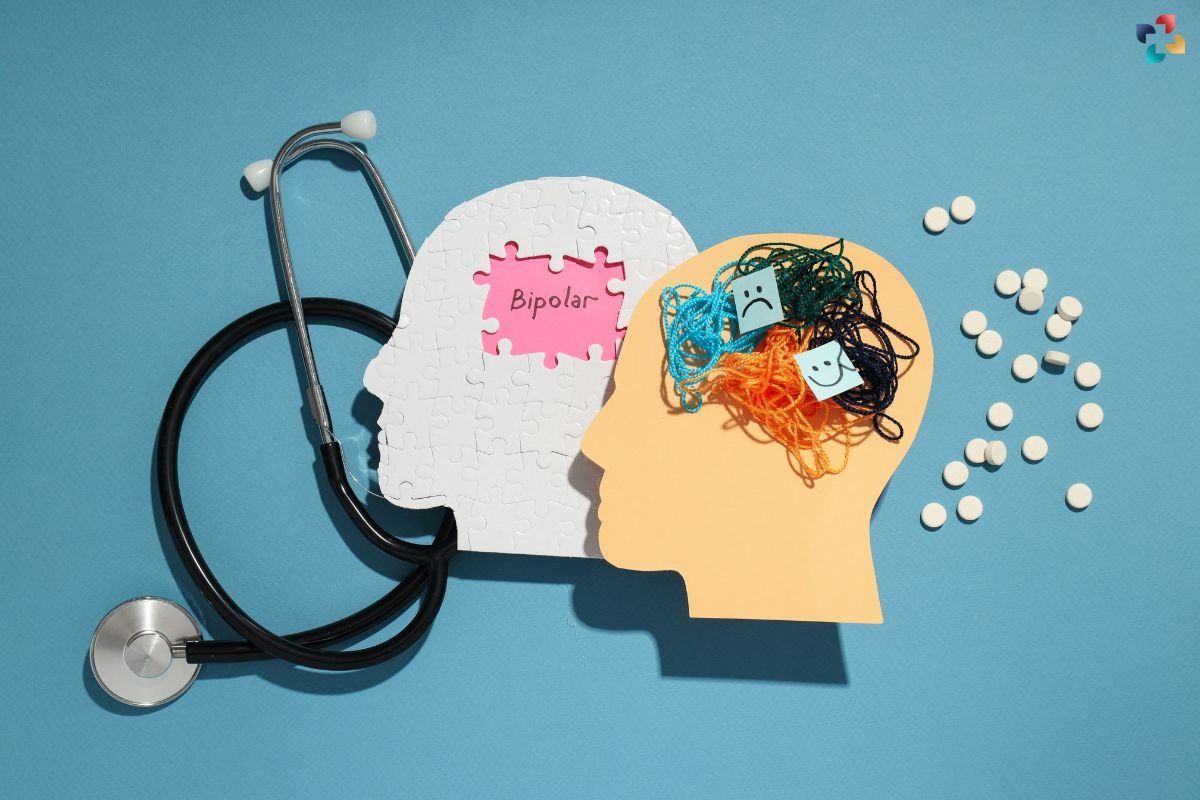Dependent Personality Disorder (DPD) is a type of personality disorder characterized by a pervasive and excessive need to be taken care of, which leads to submissive and clinging behaviors and fears of separation. Individuals with DPD often have difficulty making everyday decisions without an excessive amount of advice and reassurance from others, and they tend to rely heavily on others for emotional and physical support.
Understanding Dependent Personality Disorder is crucial for identifying and helping those affected by it. In this article, we will explore the nature of DPD, its symptoms, causes, and the various treatment options available to those who suffer from this condition.
What is Dependent Personality Disorder?
Dependent Personality Disorder is one of the Cluster C personality disorders, which are characterized by anxious and fearful thinking and behavior. DPD typically begins in early adulthood and is more commonly diagnosed in women than men. The disorder can significantly impair an individual’s ability to function independently in daily life, affecting their relationships, work, and overall quality of life.
Characteristics of DPD
1. Submissiveness and Clinginess:
Individuals with DPD often exhibit excessively submissive and clingy behavior. They may feel unable to manage life without the help of others and will go to great lengths to secure support and nurturing.
2. Difficulty Making Decisions:
People with DPD typically have trouble making everyday decisions, such as what to wear or what to eat, without excessive advice and reassurance from others.
3. Fear of Abandonment:
There is a profound fear of being left alone or abandoned. This fear often drives the dependent behavior, as individuals with DPD feel an overwhelming need to be cared for.
4. Lack of Self-Confidence:
These individuals often struggle with low self-esteem and a lack of confidence in their abilities. They frequently believe that they are incapable of taking care of themselves.
5. Avoidance of Responsibility:
People with DPD may avoid responsibilities and tasks, preferring to rely on others to handle them.
6. Difficulty Being Alone:
Being alone can be extremely distressing for someone with DPD. They may go to great lengths to avoid being by themselves, including staying in unhealthy relationships.
Symptoms of Dependent Personality Disorder
The symptoms of Dependent Personality Disorder can vary in intensity and may manifest differently from person to person. However, common signs and symptoms include:
1. Difficulty Making Decisions Without Reassurance:
Individuals with DPD often need excessive advice and reassurance from others to make even simple decisions.
2. Fear of Disapproval or Criticism:

They have an intense fear of disapproval or criticism from others, which can lead to submissive and clingy behavior.
3. Difficulty Expressing Disagreement:
They may struggle to express disagreement with others due to fear of losing support or approval.
4. Avoiding Responsibilities:
Individuals with DPD often avoid responsibilities, preferring to let others take charge of their lives.
5. Lack of Initiative:
They typically lack initiative and confidence, relying heavily on others to start or maintain activities.
6. Urgent Need to Start a New Relationship:
When a close relationship ends, they may urgently seek another relationship to provide the support and care they need.
7. Difficulty Being Alone:
They feel uncomfortable or helpless when alone due to their fear of being unable to care for themselves.
8. Fear of Abandonment:
There is a pervasive and excessive fear of being abandoned or left alone, driving their dependent behavior.
Causes of Dependent Personality Disorder
The exact cause of Dependent Personality Disorder is not fully understood, but it is believed to result from a combination of genetic, environmental, and psychological factors. Some potential contributing factors include:
1. Genetic Factors:
There may be a hereditary component to DPD, as it can run in families. Individuals with a family history of personality disorders may be at a higher risk.
2. Childhood Experiences:
Certain childhood experiences, such as overprotective or authoritarian parenting, neglect, or abuse, can contribute to the development of DPD. Children who are not encouraged to be independent may grow up feeling unable to function without the support of others.
3. Cultural Factors:
Cultural and societal expectations can play a role in the development of DPD. In some cultures, dependence on family members is encouraged and valued, which can contribute to the development of dependent behaviors.
4. Personality Traits:
Certain personality traits, such as a high need for approval and support, can increase the risk of developing DPD.
Diagnosis of Dependent Personality Disorder
Diagnosing Dependent Personality Disorder involves a thorough evaluation by a mental health professional, such as a psychiatrist or psychologist. The diagnostic process typically includes:
1. Clinical Interview:
The clinician will conduct a detailed clinical interview to assess the individual’s symptoms, behaviors, and history.
2. Psychological Assessments:
Various psychological assessments and questionnaires may be used to evaluate the presence and severity of dependent traits.
3. Diagnostic Criteria:
The clinician will refer to the diagnostic criteria outlined in the Diagnostic and Statistical Manual of Mental Disorders (DSM-5). According to the DSM-5, an individual must exhibit at least five of the following criteria to be diagnosed with DPD:
- Difficulty making everyday decisions without an excessive amount of advice and reassurance from others.
- A need for others to assume responsibility for most major areas of their life.
- Difficulty expressing disagreement with others due to fear of loss of support or approval.
- Difficulty initiating projects or doing things on their own due to a lack of self-confidence.
- Going to excessive lengths to obtain nurturance and support from others, even to the point of volunteering to do things that are unpleasant.
- Feeling uncomfortable or helpless when alone due to exaggerated fears of being unable to care for oneself.
- Urgently seeking another relationship as a source of care and support when a close relationship ends.
- An unrealistic preoccupation with fears of being left to take care of oneself.
Treatment of Dependent Personality Disorder
Treatment for Dependent Personality Disorder typically involves psychotherapy, medication, or a combination of both. The primary goals of treatment are to help individuals become more independent, build self-confidence, and develop healthier relationships. Here are the main treatment approaches:
Psychotherapy
1. Cognitive Behavioral Therapy (CBT):

CBT is a widely used therapeutic approach that focuses on identifying and changing negative thought patterns and behaviors. For individuals with DPD, CBT can help them develop healthier ways of thinking and improve their ability to make decisions independently.
2. Dialectical Behavior Therapy (DBT):
DBT combines cognitive-behavioral techniques with mindfulness practices. It can be particularly effective for individuals with DPD by helping them manage their emotions, improve their interpersonal skills, and build self-reliance.
3. Interpersonal Therapy (IPT):
IPT focuses on improving interpersonal relationships and communication skills. It can help individuals with DPD develop healthier relationships and reduce their dependence on others.
4. Psychodynamic Therapy:
This therapy explores the underlying unconscious conflicts and past experiences that contribute to dependent behavior. By gaining insight into these issues, individuals can work towards resolving them and developing greater independence.
Medication
While there are no specific medications approved for the treatment of Dependent Personality Disorder, medication may be prescribed to address co-occurring conditions such as anxiety or depression. Commonly used medications include:
1. Antidepressants:
Selective serotonin reuptake inhibitors (SSRIs) or other types of antidepressants can help alleviate symptoms of depression and anxiety that often accompany DPD.
2. Anti-anxiety Medications:
Benzodiazepines or other anti-anxiety medications may be prescribed to manage severe anxiety symptoms. However, these medications are typically used for short-term relief due to the risk of dependency.
Lifestyle Changes and Self-Help Strategies
In addition to professional treatment, individuals with Dependent Personality Disorder can benefit from making certain lifestyle changes and adopting self-help strategies. Some of these include:
1. Building Self-Confidence:
Engaging in activities that promote self-confidence and independence can be beneficial. This might include pursuing hobbies, taking on new challenges, or seeking opportunities for personal growth.
2. Developing Problem-Solving Skills:
Learning effective problem-solving skills can help individuals feel more capable of handling life’s challenges independently.
3. Strengthening Social Support Networks:
Building a strong support network of friends, family, and support groups can provide valuable encouragement and assistance.
4. Practicing Mindfulness and Relaxation Techniques:

Mindfulness meditation, yoga, and other relaxation techniques can help reduce anxiety and improve emotional well-being.
5. Setting Boundaries:
Learning to set healthy boundaries in relationships is crucial for individuals with DPD. This can help them develop more balanced and mutually supportive relationships.
Challenges in Treating Dependent Personality Disorder
Treating Dependent Personality Disorder can be challenging due to the deeply ingrained nature of the dependent behaviors and the individual’s fear of losing support. Some common challenges include:
1. Resistance to Change:
Individuals with DPD may be resistant to change and reluctant to take steps towards independence due to their fear of abandonment and lack of self-confidence.
2. Therapeutic Alliance:
Building a strong therapeutic alliance is essential for effective treatment. The therapist must be patient, empathetic, and supportive while encouraging the individual to take steps towards independence.
3. Co-occurring Disorders:
DPD often co-occurs with other mental health conditions, such as anxiety, depression, or other personality disorders. Addressing these co-occurring conditions is important for comprehensive treatment.
4. Relapse Prevention:
Helping individuals develop relapse prevention strategies is crucial. This may involve ongoing therapy and support to reinforce healthy behaviors and coping skills.
Conclusion
Dependent Personality Disorder is a complex and challenging condition that can significantly impact an individual’s ability to function independently and maintain healthy relationships. Understanding the nature of DPD, its symptoms, causes, and treatment options is essential for providing effective support to those affected by the disorder.
With the right combination of psychotherapy, medication, and lifestyle changes, individuals with DPD can work towards greater independence, build self-confidence, and develop healthier relationships. While the road to recovery may be challenging, with patience, support, and determination, individuals with Dependent Personality Disorder can lead fulfilling and autonomous lives.






